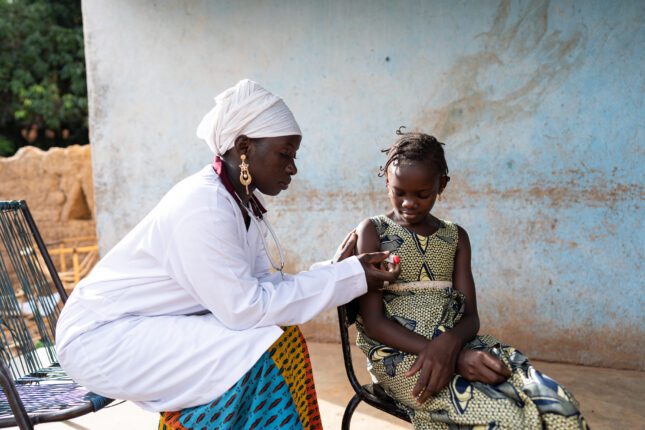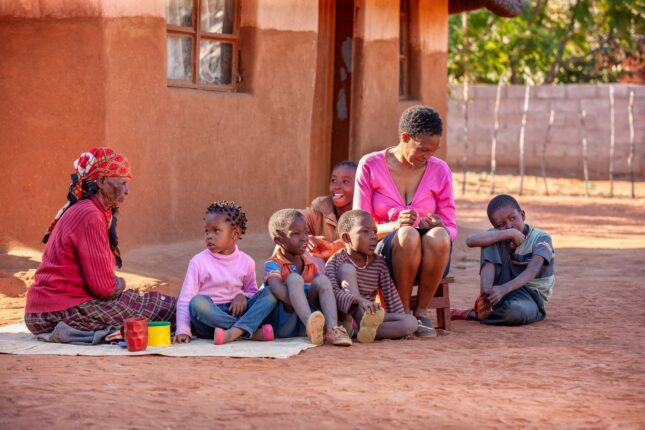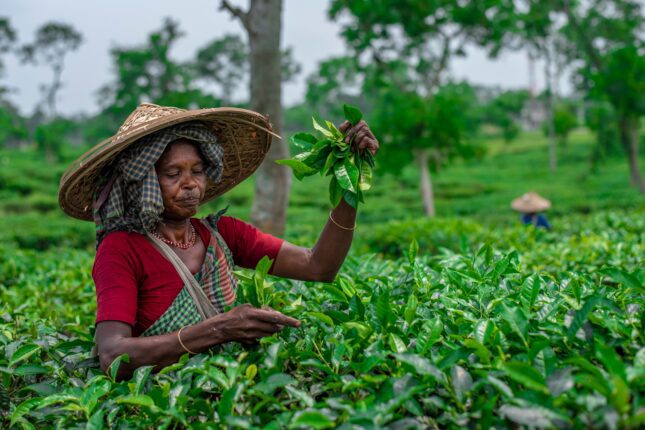-
Addressing Africans’ Top Concerns Means Advancing Women’s Rights
›October 29, 2025 // By Claire DoyleFrom Kenya to Morocco to Madagascar, waves of protest have erupted across Africa. Africans—and especially young Africans—have grown increasingly frustrated with a lack of economic opportunities.
So, it is no surprise that when Afrobarometer, a pan-African, non-partisan survey research organization, asked people across 39 African countries which issues they think their governments should prioritize, people ranked unemployment as the top policy priority.
-
The Dangerous Distraction of Population Decline Alarmism
›July 9, 2025 // By Kathleen Mogelgaard
As headlines warn of falling birth rates and a “world gone gray,” a more urgent and overlooked story is unfolding: in too many places, women and girls are still being failed – with profound consequences for human health, economic growth, and sustainable development.
This week will mark the 35th World Population Day, a day established to focus attention on how population trends – growth, decline, migration, urbanization – shape our shared future. These dynamics influence everything from natural resource use and governance models to, over time, relationships among nations. Understanding where and how populations are changing allows us to plan more effectively and strategically for the future, and to steward our resources toward development success that can be truly sustained.
-
Beating the Backlash: Can Incremental Approaches Strengthen NGO Responses to Security-Based Migration Policies
›
On October 2, 2024, Dominican President Luis Abinader launched a large-scale deportation operation through the National Security and Defense Council. Framed as an “emergency” security measure to “protect national sovereignty and address migration challenges,” the operation aimed to deport 10,000 Haitian migrants every week.
-
ECSP Weekly Watch | December 9 – 13
›
A window into what we’re reading at the Wilson Center’s Environmental Change and Security Program
Mekong River Development Faces Public Outcry (Mongabay)
The Mekong River flows through China, Myanmar, Laos, Thailand, Cambodia, and Vietnam—and a new development on this waterway near the downstream Thailand-Laos border has triggered protests in Thailand. The Pak Beng hydropower development is a joint project of China Datang Overseas Investment and Thailand-based Gulf Energy Development which is estimated to generate 912 megawatts of power to be sold to Thailand’s state energy company.
-
Confronting Pronatalism is Essential for Reproductive Justice and Ecological Sustainability
›
Pronatalism, the push for women to have more children, has elbowed its way into prominence in public discourse. In the United States, cultural and institutional pressures on women to bear children are articulated in various ways, from negative portrayals of women who don’t consider having a child a viable choice for themselves, to a burgeoning Silicon Valley subculture that advocates having “tons of kids” to save the world, to policy proposals that would further restrict reproductive choice or limit the voting power of the childless. The stigmatization of people without children and the recent rise in contemporary pronatalism is a global phenomenon.
-
“Too Many” to “Too Few”: South Korea’s Declining Fertility Rates
›
In South Korea, pet strollers have become more popular than baby strollers. Sales reports from an e-commerce firm in that country noted that sales of infant strollers fell by 43% in 2023, while the sales of pet strollers rose by 57%—and consumer demand for pet products continued to grow into the first months of 2024. There has also been an uptick in the opening of veterinary hospitals that is outpacing the establishment of pediatric clinics in many neighborhoods.
-
New Security Brief | Pioneering Solutions: Climate Finance, Gender Equity, and Sexual and Reproductive Health Services
›
This article is adapted from “Pioneering Solutions: Climate Finance, Gender Equity, and Sexual and Reproductive Health Services”
A warming world is leading to new challenges for communities and countries around the globe. The significant impacts of climate change on global health, and on women and girls, are well-documented. Yet despite the evidence, funding for climate responses that focus on health or gender remains relatively low. In the rare instances where climate finance provides funds to improve health services, sexual and reproductive health (SRH) services—which are critical to women’s full participation in society and decisionmaking—are largely neglected.
-
ECSP Weekly Watch | September 16 – 20
›
A window into what we’re reading at the Wilson Center’s Environmental Change and Security Program
COP29-Host Azerbaijan Accused of Hypocrisy (The Guardian)
Azerbaijan holds the presidency for the upcoming COP29 in November 2024, and it is using that platform to call for all member states to cease any ongoing conflict they are involved in during the two-week conference. The Central Asian country will also host a “peace day” on November 15, and is putting forth a COP29 Climate and Peace Initiative to support vulnerable countries and advance action in the climate and peace nexus.
Showing posts from category population.












